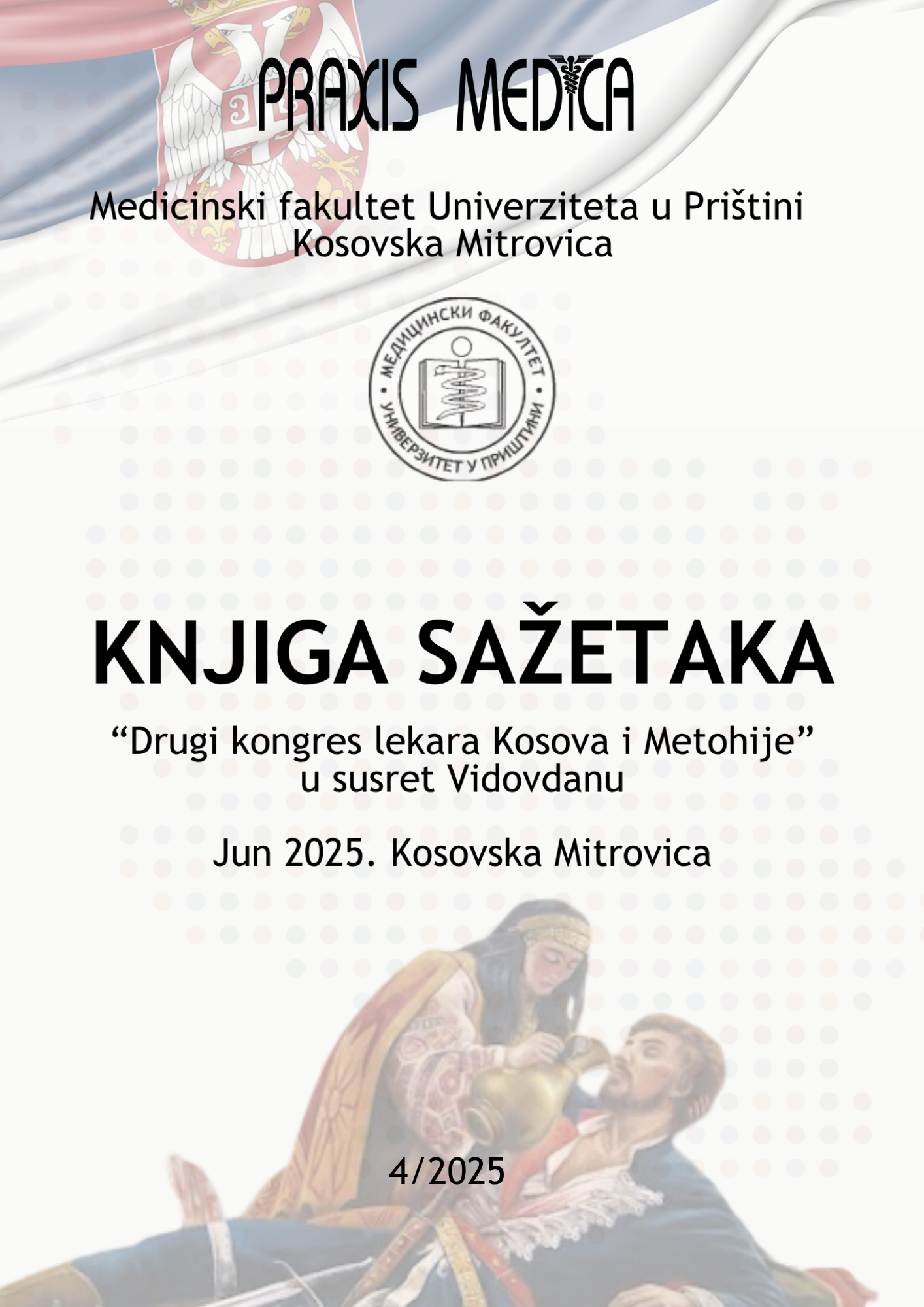Current issue

Volume 53, Issue 4, 2025
Online ISSN: 2560-3310
ISSN: 0350-8773
Volume 53 , Issue 4, (2025)
Published: 30.06.2025.
Open Access
All issues
Contents
01.12.2019.
Professional paper
The immediate effects of the Covid-19 pandemia on postpartum women
The new pandemic, caused by the corona viral disease 2019 (Covid-19), has brought with it a series of restrictive measures that have drastically altered people's way of life and which restrict freedom of movement, behavior and social engagement. At the time of pandemia, almost all aspects of each individual lifestyle have been impaired, especially in members of vulnerable groups, particularly women in postpartum women. Acute psychological reactions to a pandemia may include insomnia, fear of infection, anxiety, frustration, panic attacks, loneliness, but also depressive episodes. Non-psychotic postpartum mood and anxiety disorders can occur as an inability to adapt to stressful life situations. A comprehensive understanding of the impact of the pandemia on the mental health of women in the postpartum period is needed, in order to devise adequate approaches to recovery from such a major disaster as the Covid-19 pandemic.
Jelena Stojanov, Aleksandar Stojanov, Miodrag Stanković, Olivera Žikić
01.12.2019.
Professional paper
RISK FACTORS FOR POSTPARTUM DEPRESSION IN THE EARLY POSTPARTUM PERIOD
Introduction: Some psychosociodemographic and characteristics of pregnancy and childbirth have been associated with
the onset of postpartum depression in the literature.
Aim: To examine certain psychosociodemographic and characteristics of pregnancy and childbirth as potential risk factors
for the onset of postpartum depression in the early postpartum period. Material and Methods: The study involved 120 subjects, which included the use of the Edinburgh Postpartum Depression Scale and a sociodemographic questionnaire constructed for the purposes of this study, in the early postpartum period.
Results: Of the total 92 (76.7%) subjects were not depressed, while 28 (23.3%) had depression. The high risk of postpartum depression correlates with: postpartum weight gain, subjective experience of lack of freedom, fear that she would be abandoned (p <0.05), as well as having frequent quarrels, mentioning a divorce or divorce, and a temporary separation, poor relationship with the parents on both sides and poor general family atmosphere (p <0.001). A statistically significant risk of depression was also found in the group with complications during childbirth, unplanned pregnancy (p <0.001), as well as alcohol and cigarette consumption during pregnancy (p <0.05).
Conclusion: The risk of postpartum depression can be detected by applying the EPDS scale in the early postpartum period. Early detection of potential risk factors can significantly prevent the onset of postpartum depression and significantly affect the central psychological process in the postpartum period, which is related to the development of an emotional relationship between mother and child.
Jelena Stojanov, Aleksandar Stojanov, Miodrag Stanković





